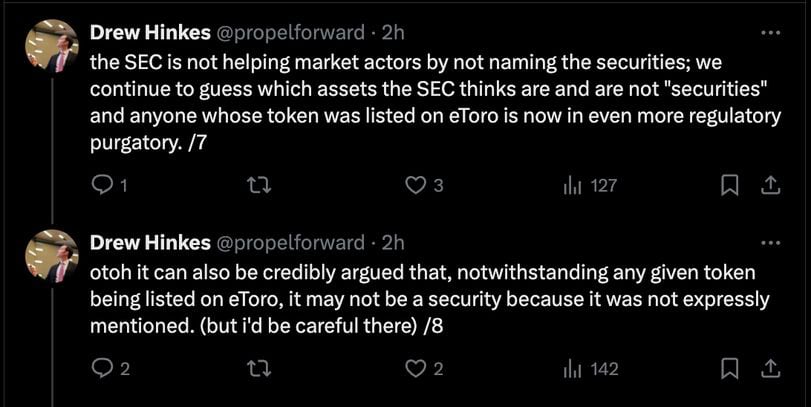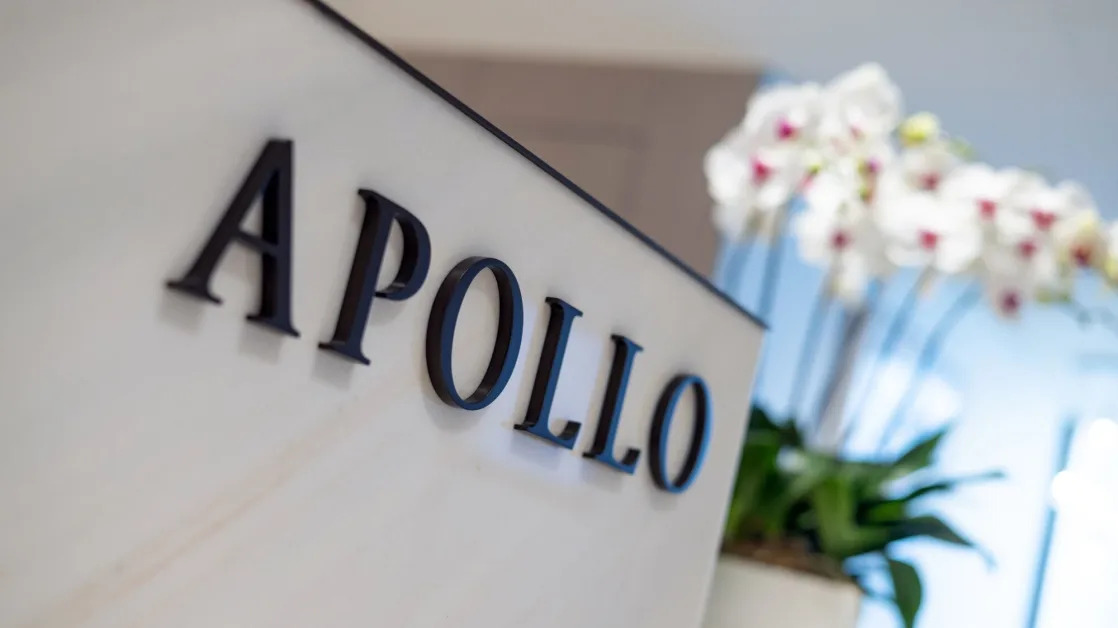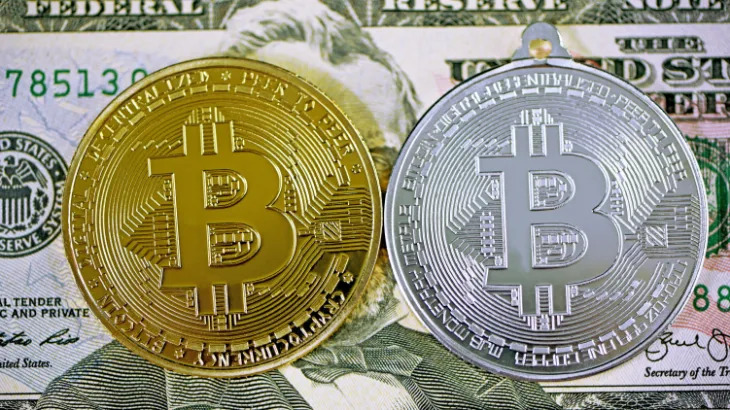Trading platform eToro agreed Thursday to settle charges with the U.S. Securities and Exchange Commission that it operated as an unregistered broker and clearing agency and that it facilitated trading in some crypto assets that are securities. The agreement sees eToro paying a $1.5 million fine and means the company will be limited to trading just three digital assets: bitcoin (BTC) , bitcoin cash (BCH) and ether (ETH) .
Etoro, which is based in Israel, is not a big player in the U.S. crypto market. It has only 240,000 customer accounts compared to Coinbase's 100 million. But the SEC agreement is significant for the clues it offers about how the regulator views the key legal question of which digital assets are not securities, and therefore outside its supervision, lawyers contacted by CoinDesk said.
Below is a sampling of reactions from leading digital asset-focused attorneys:
Joseph Tully, securities litigation lawyer at Tully & Weiss:
“It appears that the SEC has officially sanctioned BTC, BCH, and ETH so we know that the SEC considers at least those three to be commodities and not securities. The key words here [are] at ‘at least.’ There may be others, but there is no legal guidance based upon this settlement.”
Lowell Ness , partner at Perkins Coie:
“It’s interesting to see parties agreeing to this kind of drastic settlement when viewed against federal court rulings holding that programmatic trades are not securities transactions. This settlement highlights the huge gap that may be developing between regulators and some of the early court decisions.”
Drew Hinkes , Partner with K&L Gates:

Joshua Ashley Klayman, U.S. Head of Fintech and Head of Blockchain and Digital Assets at Linklaters:
“What we know from the face of the Cease and Desist Order is that eToro submitted an Offer of Settlement that the SEC accepted. eToro does not admit or deny the findings set forth in the Cease and Desist Letter, except with respect to the SEC’s jurisdiction.
"It is important to remember that, unlike in a court case, where allegations must be proven, parties have freedom of contract to agree to settlements. Here, we have very little information about which digital asset or assets the SEC may have alleged were the subject of securities transactions. We also do not have visibility into eToro’s motivations for settling, nor its business plans or strategy generally.
"For those reasons, in my view, one should exercise caution and should not assume that the existence of the Cease and Desist Order will have an impact on any enforcement action that may be before the courts, now or in the future. Put differently, no allegations were proven in connection with this Cease and Desist Order, and it appears that no allegations were even made by the Commission as to which specific digital assets the Commission thought to be securities or to form part of a securities transaction.”
Bill Hughes, lawyer at Consensys:
Former SEC lawyer Alexandra Damsker:
“What a disappointment to take the settlement.
"These people are chickens - we have an opening post [the Supreme Court decision] Loper: they should go to the courts and get a determination. The SEC actually DOESN’T have the final say here.
"But they are just cutting off the business and running off, tail between their legs. Oh well.”
We’ll update this article with more reactions as we receive them.
Note: The views expressed in this column are those of the author and do not necessarily reflect those of CoinDesk, Inc. or its owners and affiliates.




